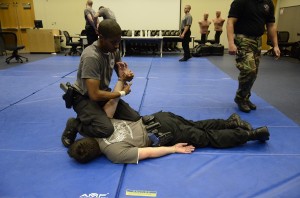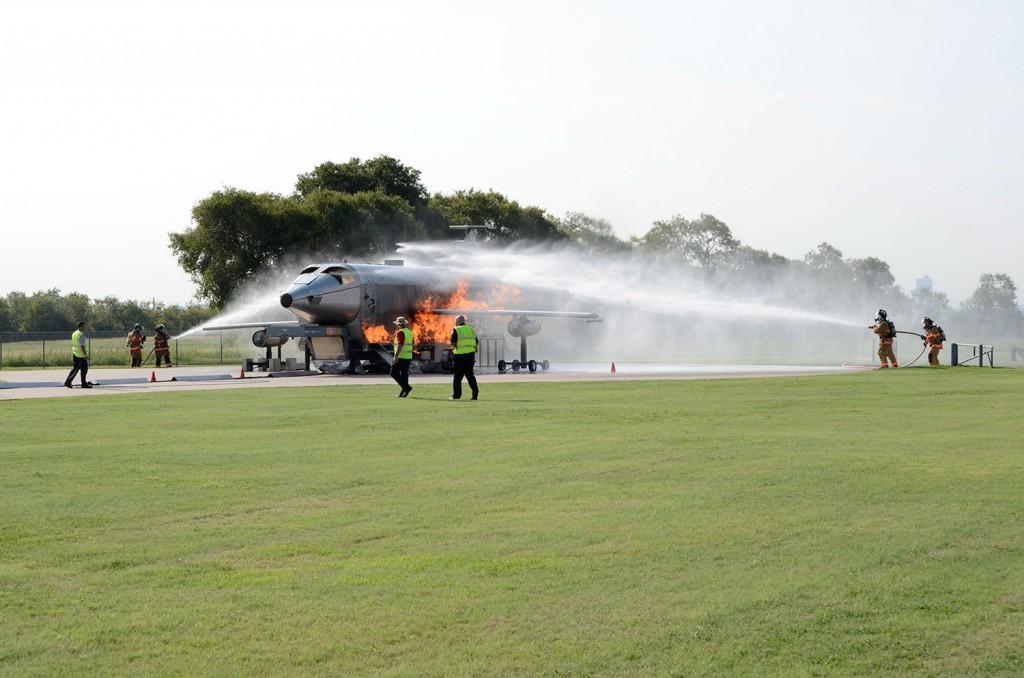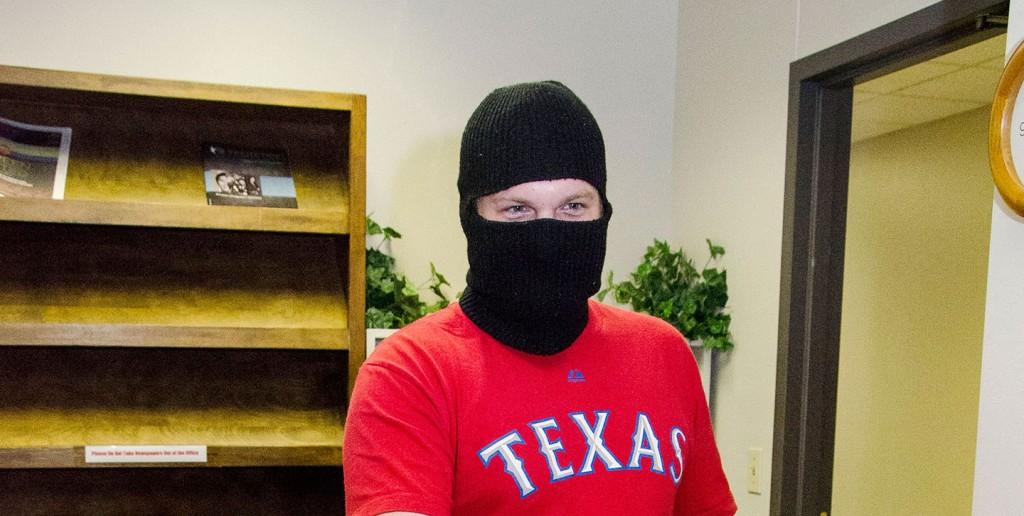By Karen Gavis/managing editor
TCC’s criminal justice program will begin training private eyes and security as well as police in November.
Previously located on NE Campus, the criminal justice department has functioned since 1980 on NW Campus and recently marked its 150th basic peace officer course.

David Reid/The Collegian
The Criminal Justice Training Center offers the basic course as well as continuing education for officers already in the field.
The basic peace officer course is an 18-week program, said assistant coordinator Damon Jackson.
Assistant coordinator Scott Donaldson said although municipalities and agencies do sponsor many students, vacant seats are filled through an application process. Students are then selected from the applicants by the program’s coordinator, and about 180 students graduate from the academy yearly.
“It is very competitive,” he said.
TCC police academy cadets train 8 a.m.-5 p.m. Monday through Friday for a total of 696 hours. Tuition for non-credit certification costs $680 while the same certification plus 18 hours college credits tallies $936. Six academies are provided throughout the year, and students must be 21 before completing the course.
According to TCC’s website, 318 of its police academy cadets received a 100 percent pass rate on the basic peace officer licensing exam during fiscal years 2008-2011.
NW police department administrative assistant Maria Dulaney, a former Fort Worth police officer, attended both TCC and the Fort Worth police academy, graduating from TCC’s criminal justice program in 2009. Dulaney said becoming a police officer was something she had dreamed of since childhood.
“It was just always something I had in me,” she said.
Dulaney said while larger cities may have their own police academies, some of the smaller cities do not and will send cadets to TCC for their training.
“We’ve got an outstanding gun range,” she said.
Earning an associate degree in criminal justice takes about two years if going full time, and students have many avenues to pursue, Dulaney said. Different agencies need criminal justice graduates.
Generally, people who choose this type of career have a desire to protect and serve and a willingness to lay their life on the line for someone else, Dulaney said.
“You don’t do it to get rich, and you’re certainly not doing it to be famous,” she said. “You do it because it’s a passion that you have.”

























